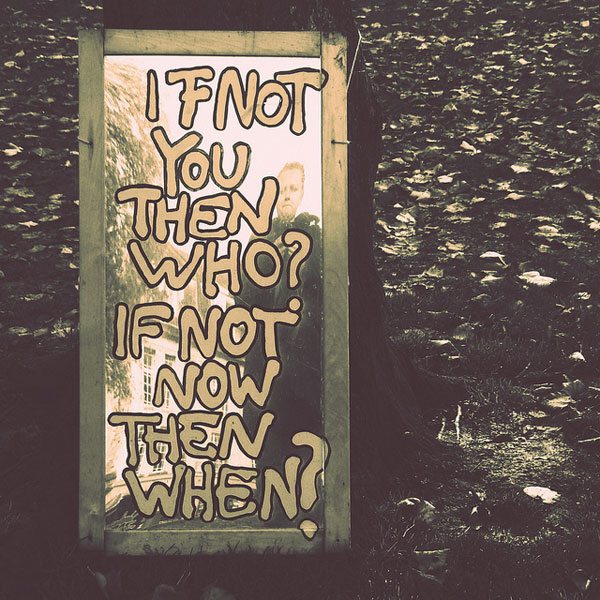
September 11, 2017; Forward
The American Jewish community’s well-established network of advocacy, social service, and fundraising organizations now has to deal with demands for change that might threaten their viability. Fueled by the growing force of millennial activism, the same dynamic that spawned the Occupy movement and Black Lives Matter, new organizations, exemplified by the three-year-old IfNotNow, are springing up in the Jewish community and challenging the status quo, demanding systemic change, and competing for leadership.
Writing in the Forward, commentator Peter Beinart recently described the emergence of this millennial-driven organization that’s roiling Jewish community waters:
IfNotNow…stems not from the hopes that Obama inspired, but from disillusionment with what he failed to achieve. Occupy was a response to Obama’s failure to fundamentally reform Wall Street. The “dreamer” protests were a response to his record-level deportations of undocumented immigrants. Black Lives Matter was a response to his failure to curb police violence. And IfNotNow is a response to his failure to end Israel’s occupation of the West Bank.
A recently launched IfNotNow hashtag campaign, #YouNeverToldMe, illustrates their willingness to rock the boat. According to the Forward, “The campaign…relates the outrage and disappointment of millennial Jews upset that the synagogues, camps, and other institutions they grew up in did not better inform them about Israel’s occupation of the West Bank.”
Sign up for our free newsletters
Subscribe to NPQ's newsletters to have our top stories delivered directly to your inbox.
By signing up, you agree to our privacy policy and terms of use, and to receive messages from NPQ and our partners.
As important as the specific programs and political positions these emerging groups advocate are their urgency and their desire to be in charge. Unlike earlier generations, which may have been willing to engage in the process of organizational governance, join committees, and add their thinking to the ongoing discussion, millennials demand change or else. Millennial-led groups are not willing to “wait their turn”; they are ready to challenge how organizations are structured and demand that their agenda and tactics be adopted.
As the group wrote in a post on Medium, “We see ourselves as part of an entire generation that is rising up and organizing mass movements for real change.” IfNotNow wants this change to happen now.
We can no longer accept an educational approach to the Israeli-Palestinian conflict that ranges from open endorsement of indefinite occupation to saying, “It’s complicated” and leaving it at that. We can no longer accept a communal norm that will force another generation to only learn about the occupation only once they leave these institutions. We can no longer sit idly by while the institutions we care so deeply about lose moral legitimacy.
Earlier this year, NPQ looked at millennials from a fundraising perspective. Sheela Nimishakavi cited a Case Foundation and Achieve report that cautioned organizations to “not assume they are going to approach it the way previous generations did…millennials want to have a much more hands-on impact and connect with the work and understand the impact of the work.” Our feature above cautions us away from such blanket statements, but it is pretty clear that younger people come at issues with new ideas about what is important for an ever-more-connected global world and new tools that are native to their generations.
Now, we are seeing these traits beginning to challenge nonprofit organizations and their future. For the Jewish community, IfNotNow presents a threat to an infrastructure that has been developed over more than a century. This framework provides a range of basic human services to at-risk populations; it provides political support for the unique issues and concerns of the Jewish Community and has developed a wide-ranging educational program designed to ensure the community’s future strength. If significant numbers drop away because these organizations cannot or will not make the changes being demanded, the strength of this community structure is in jeopardy. Will millennials create new organizations to replace those they weaken? And, with so much legacy wealth controlled by the establishment, how will they fund these new directions?—Martin Levine












